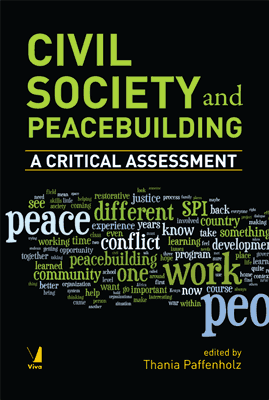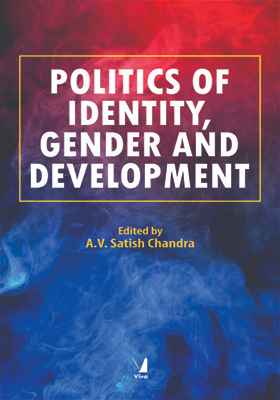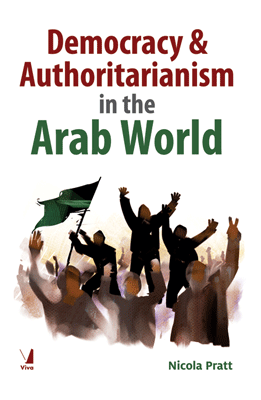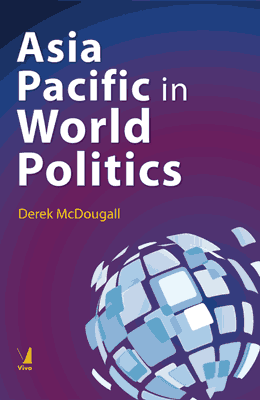Civil Society and Peacebuilding
Civil Society and Peacebuilding
A Critical Assessment
₹1,795.50 ₹1,995.00 Save: ₹199.50 (10%)
Go to cart-
Out of Stock
ISBN: 9789386105318
Bind: Paperback
Year: 2018
Pages: 528
Size: 6 x 9 Inch
Publisher: Lynne Rienner Publishers, Inc.
Published in India by: Viva Books
Exclusive Distributors: Viva Books
Sales Territory: India, Nepal, Pakistan, Bangladesh, Sri Lanka
"Extremely comprehensive and ground-breaking in many respects."
—V'ronique Dudouet, Die Friedens-Warte
"A major book.... The first systematic, realistic assessment of the role of civil society in peace processes."
—John Darby, University of Notre Dame
"This important contribution brings a theoretically informed and comparative analysis to the role of civil society in peacebuilding."
—N'cla Tschirgi, University of Ottawa
"The great strength of this well-structured and timely contribution lies in the connection of solid empirical findings with theoretical concepts."
—Siegmar Schmidt, University of Landau
Description:
Responding to the burgeoning interest in the role of civil society in peace processes, this groundbreaking collaborative effort identifies the constructive functions of civil society in support of peacebuilding both during and in the aftermath of armed conflict. The authors also highlight the factors that support those functions and the obstacles to their fulfillment. A comprehensive analytical framework is applied to 11 country cases, not only allowing comparative analysis, but also providing a new tool for further research.
Target Audience:
People interested in the role of civil society in peace processes.
Contents:
Preface
Part 1: Context: What We Already Know
Chapter 1. Understanding Civil Society—Christoph Spurk
Chapter 2. Civil Society and the State—Kjell Erling Kjellman and Kristian Berg Harpviken
Chapter 3. Civil Society and Peacebuilding—Thania Paffenholz
Chapter 4. A Comprehensive Analytical Framework—Thania Paffenholz and Christoph Spurk
Part 2: Case Studies: Applying the Framework
Chapter 5. Guatemala: A Dependent and Fragmented Civil Society—Sabine Kurtenbach
Chapter 6. Northern Ireland: Civil Society and the Slow Building of Peace—Roberto Belloni
Chapter 7. Bosnia-Herzegovina: Civil Society in a Semiprotectorate—Roberto Belloni and Bruce Hemmer
Chapter 8. Turkey: The Kurdish Question and the Coercive State—Ays'e Bet'l 'elik
Chapter 9. Cyprus: A Divided Civil Society in Stalemate—Esra 'uhadar and Andreas Kotelis
Chapter 10. Israel and Palestine: Civil Societies in Despair—Esra 'uhadar and Sari Hanafi
Chapter 11. Afghanistan: Civil Society Between Modernity and Tradition—Kaja Borchgrevink and Kristian Berg Harpviken
Chapter 12. Nepal: From Conflict to Consolidating a Fragile Peace—Rhoderick Chalmers
Chapter 13. Sri Lanka: Peace Activists and Nationalists—Camilla Orjuela
Chapter 14. Somalia: Civil Society in a Collapsed State—Ken Menkhaus with Hassan Sheikh, Shane Quinn, and Ibrahim Farah
Chapter 15. Nigeria: Dilemmas of Co-optation in the Niger Delta—Darren Kew and Cyril Obi
Part 3: What We Have Learned
Chapter 16. What Civil Society Can Contribute to Peacebuilding—Thania Paffenholz
Chapter 17. Enabling and Disenabling Factors for Civil Society Peacebuilding—Thania Paffenholz, Christoph Spurk, Roberto Belloni, Sabine Kurtenbach, and Camilla Orjuela
Chapter 18. Conclusion—Thania Paffenholz
List of Acronyms
Bibliography
The Contributors
Index
About the Book
About the Author:
Thania Paffenholz is lecturer in peace, development, and conflict studies and senior researcher at the Centre for Conflict, Development and Peacebuilding at the Graduate Institute of International and Development Studies in Geneva. She is coauthor of Aid for Peace: A Guide to Planning and Evaluation for Conflict Zones and coeditor of Peacebuilding: A Field Guide.







